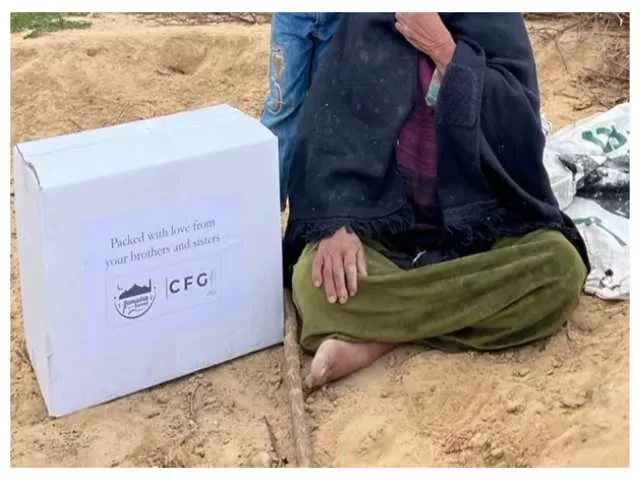In Gaza, residents desperate to leave amid conflict resort to paying hefty sums to mysterious intermediaries involved in a corruption-riddled system. The illicit practice raises concerns about the vulnerable trapped in the war zone and the increasing difficulty of this black market passage.
Gaza crisis
As the conflict in Gaza persists, a disturbing revelation has come to light: many Gazans, eager to escape the war zone, are resorting to paying exorbitant sums to mysterious intermediaries involved in a corruption-riddled system. Testimonies gathered by our team shed light on a clandestine practice known locally as “al-tansikat al-misriya” or “Egyptian coordination,” revealing the desperate measures taken by individuals to secure a way out.
A resident from Gaza, communicating via WhatsApp, disclosed the dire situation, stating, “You need to pay $9,000 (roughly €8,200) per person to get your name on a list of people authorized to leave Gaza.” This revelation has led to the emergence of hundreds of online fundraisers initiated by people hoping to gather enough funds to pay for a black market passage for their family members trapped in the war zone.
The average salary in Gaza, ranging between $500 and $600 (equivalent to €460 to €550), highlights the financial strain faced by those seeking to escape. The individuals facilitating these illicit exits, described as mysterious intermediaries, have reportedly been demanding higher sums since the onset of the conflict.
Egyptian journalist Mohannad Sabry, investigating the situation, characterized it as “corruption on a wide scale.” The vulnerable bear the brunt of this well-organized system, with injured individuals and those suffering from serious illnesses, such as cancer, being the most desperate to leave Gaza at the earliest.
These intermediaries operate primarily in the southern regions of the Gaza Strip, especially in Khan Younis and Rafah, where displaced individuals have sought refuge. Payment to these intermediaries ensures swift inclusion in lists published by the Rafah crossing, a crucial step for those seeking to exit Gaza.
The intricate network involves various government bodies, including the Egyptian passport and immigration services, the army, and intelligence services. Despite the widespread awareness of this practice, an unwritten code of silence, reminiscent of omertà, prevails. Speaking out against it results in individuals being added to a blacklist, prohibiting them from leaving Gaza.
Since the commencement of the war, an estimated 6,000 Palestinians have managed to leave the Gaza Strip, although these numbers remain unverified by independent sources. The Rafah border crossing, responsible for authorizing exits, predominantly features Palestinians with dual nationality or those with severe injuries requiring urgent medical attention.
The roots of this practice trace back to the 2007 Gaza siege, with individuals recounting experiences of resorting to the black market route even back in 2017. Over the years, the cost of such “authorizations” has surged, reaching an alarming $9,000 (approximately €8,000) per person in the current conflict.
Observers team reached out to several individuals running online fundraisers, aiming to gather funds for their loved ones’ illicit exits, but encountered reluctance due to fears that media coverage might lead to the suspension of this perilous but seemingly only viable option.
Our team also spoke to a Gaza resident now living in France, attempting to secure his mother’s exit. Expressing mixed feelings about the practice, he acknowledged paying an intermediary in France due to the existence of similar facilitators in Europe. Concerns loom over the potential suspension of these clandestine evacuations, following media attention.
Efforts to obtain clarification from the official press office of the Egyptian government, the State Information Service, on these accusations have not yielded responses. As the conflict continues, the plight of Gazans seeking to escape raises urgent questions about the ethical and humanitarian aspects of this shadowy practice amid the ongoing turmoil.

